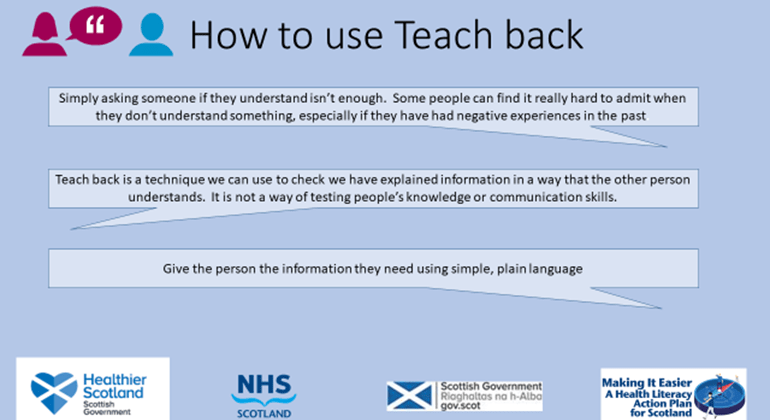Health Literacy Month 2020- How Health Literacy Training is Supporting Employment Advisers in the DWP

Our latest blog to mark Health Literacy Month 2020 is from Susie Ferguson. Susie is a Disability Employment Advisor with the Department of Work and Pensions. In her blog Susie talks about working in partnership with the Public Health Improvement Team to organise health literacy training for her DWP colleagues.
Part of my role as a Department for Work and Pensions (DWP) Disability Employment Advisor is making sure frontline colleagues are equipped with the appropriate skills and knowledge to support vulnerable clients and people with complex needs, health issues and disabilities.
After working alongside the Community Mental Health Team for four years as an Individual Placement and Support worker, I approached the Public Health Improvement Team to ask how we could further support our public: they embraced the request and we set up small focused groups to discuss the way forward. The Public Health Improvement officers spent time in various Jobcentres, shadowing colleagues in different departments and getting a real feel for what challenges front line staff face on a daily basis.
We settled on 4 main areas of support that would be beneficial to Jobcentre staff and one of those was around health literacy. The Health Literacy Training gave staff the knowledge and confidence when having difficult conversations, and being able to empower people to self-manage and maintain good health.
Despite COVID-19, the Health Improvement officers, Eileen and Morag, were swift to make contact and offer a virtual experience for us. They understood that during this time it was even more important that we were ‘armed with the correct tools’ to be able to offer ongoing support to our vulnerable customers. The training was definitely tailored to our job roles, and in particular highlighted some excellent tips on handling difficult conversations.
- Using simple language with customers
- Ask me 3
- Chunk and check and Teach Back
- Action Plan, Health Goals
I feel that the training has definitely increased my knowledge of what health literacy is and why it is important, and I feel better equipped and aware of the resources and information available, and where to find them. I am much more confident that I can provide the right support to our customers to have improved health literacy.
